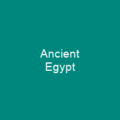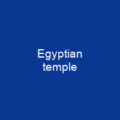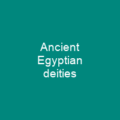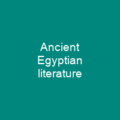Discovering Egypt: A Land of Ancient Wonders
Egypt (Arabic: مصر Miṣr [mesˁr]), officially the Arab Republic of Egypt, spans Africa and Asia via the Sinai Peninsula. It is bordered by the Mediterranean Sea to the north, Gaza Strip to the northeast, Red Sea to the east, Sudan to the south, and Libya to the west. Cairo is the capital and largest city, with Alexandria being the second-largest city and hub for industry and tourism. With approximately 107 million inhabitants, Egypt is the third-most populous country in Africa and 14th-most populated in the world.
History: A Timeline of Ancient Wonders
Imagine a timeline stretching back to the 6th–4th millennia BCE, when Egypt was considered a cradle of civilization. Early developments in writing, agriculture, urbanization, organized religion, and central government laid the foundation for what would become one of the world’s most enduring civilizations. From early Christianity to the adoption of Islam from the seventh century onwards, Egypt has seen it all.
As we move through history, Cairo became the capital of the Fatimid Caliphate in the tenth century and Mamluk Sultanate in the 13th century. The country’s political landscape continued to evolve with the establishment of modern Egypt as a Khedivate by Muhammad Ali in 1867, followed by British occupation and eventual independence in 1922.
The 1952 revolution marked a turning point, leading to the declaration of Egypt as a republic. The country’s political journey continued with the establishment of a semi-presidential republic led by Abdel Fattah el-Sisi after the 2011 Egyptian revolution and overthrow of Hosni Mubarak.
Economy: A Developing Nation
With approximately 107 million inhabitants, Egypt is a developing country with the second-largest economy in Africa. Considered a regional power in the Middle East, North Africa, and the Muslim world, it has made significant strides in various sectors.
The Egyptian economy depends mainly on agriculture, media, petroleum exports, natural gas, and tourism. The Suez Canal connects the Mediterranean Sea and the Red Sea, allowing ship transport between Europe and Asia. This waterway is a vital artery for global trade, contributing significantly to Egypt’s economic stability.
Culture: A Blend of Traditions
Egyptian culture is a rich tapestry woven from various traditions. From ancient art and architecture to modern literature and music, the country has much to offer. The Egyptians were one of the first major civilizations to codify design elements, creating timeless works like Egyptian blue, a pigment used for thousands of years.
Art and architecture in Egypt are not just about the past; they continue to influence contemporary life. From the ancient pyramids to modern museums, each piece tells a story of a civilization that has stood the test of time.
Healthcare: A Growing Sector
Egypt’s healthcare system has made significant strides in recent years. Access to healthcare in both urban and rural areas has greatly improved, with immunisation programmes covering 98% of the population. Life expectancy increased from 44.8 years during the 1960s to 72.12 years in 2009.
However, challenges remain. According to the World Health Organisation, an estimated 91.1% of Egypt’s girls and women aged 15 to 49 have been subjected to genital mutilation. In 2016, the law was amended to impose tougher penalties on those convicted of performing the procedure.
The total number of Egyptians with health insurance reached 37 million in 2009, providing an insurance coverage of approximately 52% of Egypt’s population. Despite these improvements, there is still work to be done to ensure that all citizens have access to quality healthcare.
Conclusion
Egypt stands as a testament to the enduring spirit of human civilization. From its ancient wonders to its vibrant modern culture, this land continues to captivate and inspire. As we look towards the future, Egypt’s journey is one of resilience, innovation, and continuous growth.

You want to know more about Egypt?
This page is based on the article Egypt published in Wikipedia (retrieved on February 21, 2025) and was automatically summarized using artificial intelligence.







